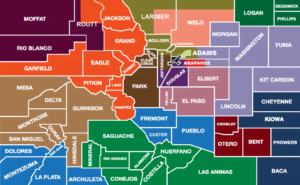From Credit.com
The Petal Visa Credit Card—a new approach to approving people for credit makes this card accessible to people with no credit history, but good financial habits.
The Credit One Bank Platinum Visa with Cash Back Rewards gives beginners card rewards with 1% cash back every month.
Save on interest with the Capital One Quicksilver Cash Rewards Credit Card, which offers a 0% APR for the first 15 months.
The Capital One Secured Mastercard features no yearly fee and is especially for consumers who have poor credit.
Journey Student Rewards from Capital One is designed especially for students, and the cash- back rate goes up to 1.25% if you make your monthly payments on time.
Petal Visa details
The Petal Visa V+0.27% credit card is available with poor, fair or no credit at all. Petal uses a unique process to determine whether to approve you for this card. You link your bank accounts to Petal during the application process. Petal then looks at your financial habits to approve you or not.
If you don’t have credit or only have poor or fair credit because you haven’t used credit much or are young, but you’re responsible financially, this card may be just what your wallet—and your credit—needs.
The card has no other fees of any kind, including no annual fee. And it has a pretty standard ongoing APR of 15.24% – 26.24% variable. Petal grants cardholders credit limits from $500 to $10,000 depending on spending habits and income.
Like any of the cards featured here, this card helps you build credit when you use it responsibly. And no annual fee and a standard APR help make that easier.
Credit One Bank Platinum Visa with cash back rewards
The annual fee for the Credit One COFI Bank Platinum Visa with Cash Back Rewards can range from $0 – $99. What you pay depends on where your credit stands.
Despite a potential annual fee, this is one of the few credit cards for people with no or low credit that pays rewards. With it, you can earn 1% cash-back rewards on eligible purchases. Your rewards automatically post to your account every month too.
In time, you can qualify for a higher credit limit with this card. And, it comes with $0 fraud liability, so you don’t have to worry about unauthorized charges.
Like many cards available to people with no or lower credit, this one has a somewhat high ongoing APR of 20.24% – 26.24% variable. The takeaway here is to pay as much of your balance off each month as possible, so you don’t end up with a high credit card balance that can come with paying interest.
Capital One QuicksilverOne Cash Rewards credit card
The Capital One COF-0.57% Quicksilver Cash Rewards Credit Card is accessible to those with only fair credit. Depending on your credit score, that might put it out of reach. But, if you do qualify, like with the Credit One Bank Platinum Visa with Cash Back Rewards, you can earn rewards. You get 1.5% cash back on all purchases.
The card does come with a rather high ongoing APR of 26.96% (variable) and an annual fee of 26.99% (variable). So, as with many of the cards covered here, avoid carrying a balance from month to month. Use it instead to build your credit.
Journey Student Rewards from Capital One
Here’s yet one more card that lets you earn rewards. On top of that, it rewards you with extra cash-back rewards when you make your payments on time. Normal cash-back rewards are 1%. Make your payments on time and earn 1.25%.
Like the Capital One Quicksilver Cash Rewards Credit Card, this one has a somewhat steep ongoing APR 26.96% (variable). So, get your rewards, but reward your credit by not carrying a balance from month to month if possible. If it’s not possible, keep that balance low.
This card also charges no annual fee.
No credit vs. bad credit
No credit isn’t the same as bad credit. You may have either. If you have no credit, changes are you’re younger or new to using credit. You’ve likely never had a credit card or even a loan. Bad credit is having a history of not using credit wisely. Either can make getting credit—including a credit card—harder.
Some cards are marketed specifically at people with bad credit. Some of those are traditional unsecured credit cards. Other are secured cards, like the Capital One Secured Mastercard MA-0.06% covered above that require a security deposit.
A secured card can be great for building credit because credit limits are low, which makes it hard to overspend and get yourself in trouble.
Even an unsecured credit card for those with bad credit though, probably won’t give cardholders much of a credit limit. And any credit card for someone with bad credit is likely to charge a higher interest rate.
On the flip side are cards for people with no credit history. Many of these cards are also secured cards with limited credit lines and often higher interest rates. One exception is the First Progress Platinum Prestige Mastercard secured credit card. It has an ongoing APR of just 10.74% variable APR for purchases. Even so, carrying a balance form month to month can easily turn no credit history into bad credit, so read on as to why it’s critical to charge carefully.
One more thing
Whatever you do, whichever credit card you get, keep your eye on the real prize, which is to build your credit. There are five key things that go into your credit score:
1. Payment history makes up 35% of your score
2. Debt usage makes up 30%
3. Credit age makes up 15%
4. Account mix makes up 10%
5. Credit inquiries make up 10%
Protect your payment history by making payments on your new credit card on time each month.
Keep the amount you charge to a maximum of 30% of your credit limit. For instance, if you get the Capital One Secured Mastercard and have a $200 credit limit, never carry a balance of more than $60 on the card. The ideal debt usage is 10%, which would mean no more than $20.
You already have a credit age issue—that’s where no credit history comes in. The only way to improve credit age is to use credit—loans or credit cards.
Account mix is the mix of types of accounts. You want revolving credit—the kind that comes with credit cards. But, you also want installment loans that are for a set amount with a predictable monthly payment.
Credit inquiries, while not a huge factor are critical. You don’t want to go out and apply for multiple cards. Apply for one that you really want and that you’re confident you’ll get approved for. Why? Because each application puts a hard inquiry on your credit, which can ding your score. The only exception is cards that say they won’t check your credit when you apply. If that’s the case, you’re OK.


